Putin wins Russian presidential elections against ‘token’ opponents
Vladimir Putin has been voted in a landslide result as Russia’s president for another six years in an election described as “not free nor fair” where all other candidates weren’t true opponents
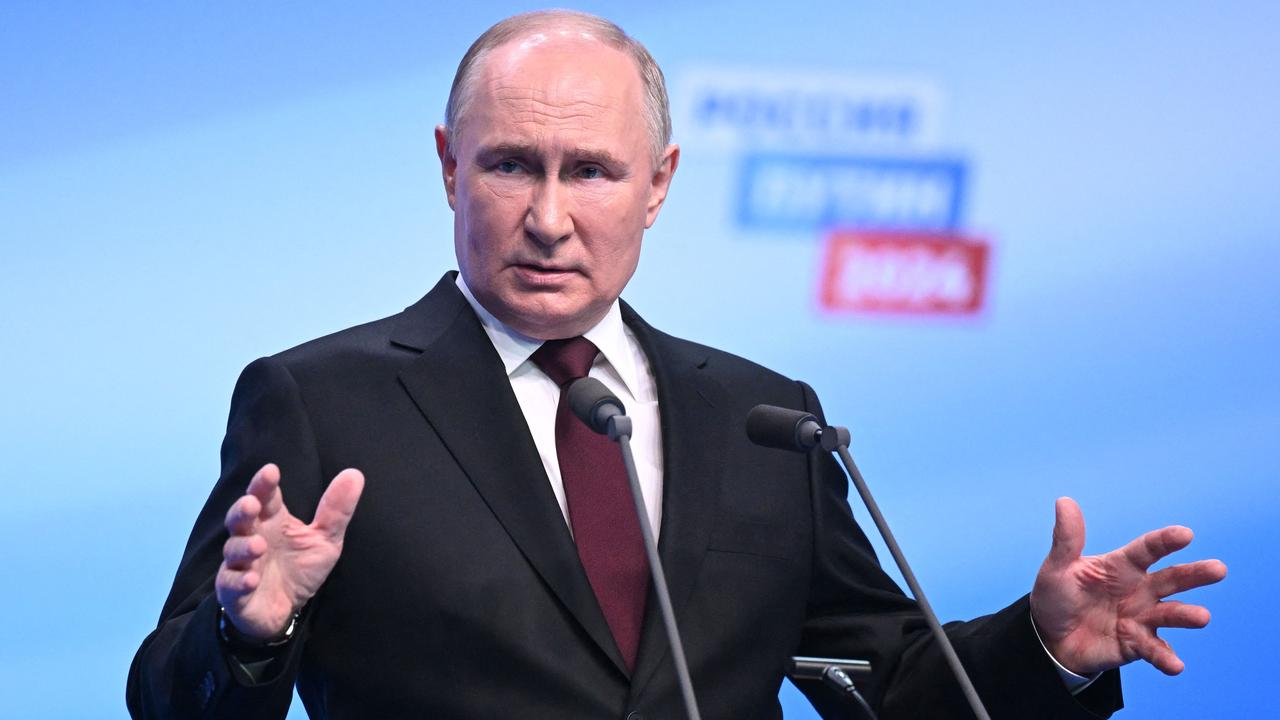
READING LEVEL: RED
Vladimir Putin has been re-elected as Russian president after winning an election where he faced no serious competition from other candidates.
After ruling Russia for nearly a quarter of a century, Putin has secured another six years in power and is set to overtake Josef Stalin to become the country’s longest-serving leader for more than 200 years.
According to Russia’s Central Election Commission, 87 per cent of Russians voted for Putin.
Communist candidate Nikolai Kharitonov came second with just under 4 per cent of the vote.
The US described the elections as not being “free or fair”.
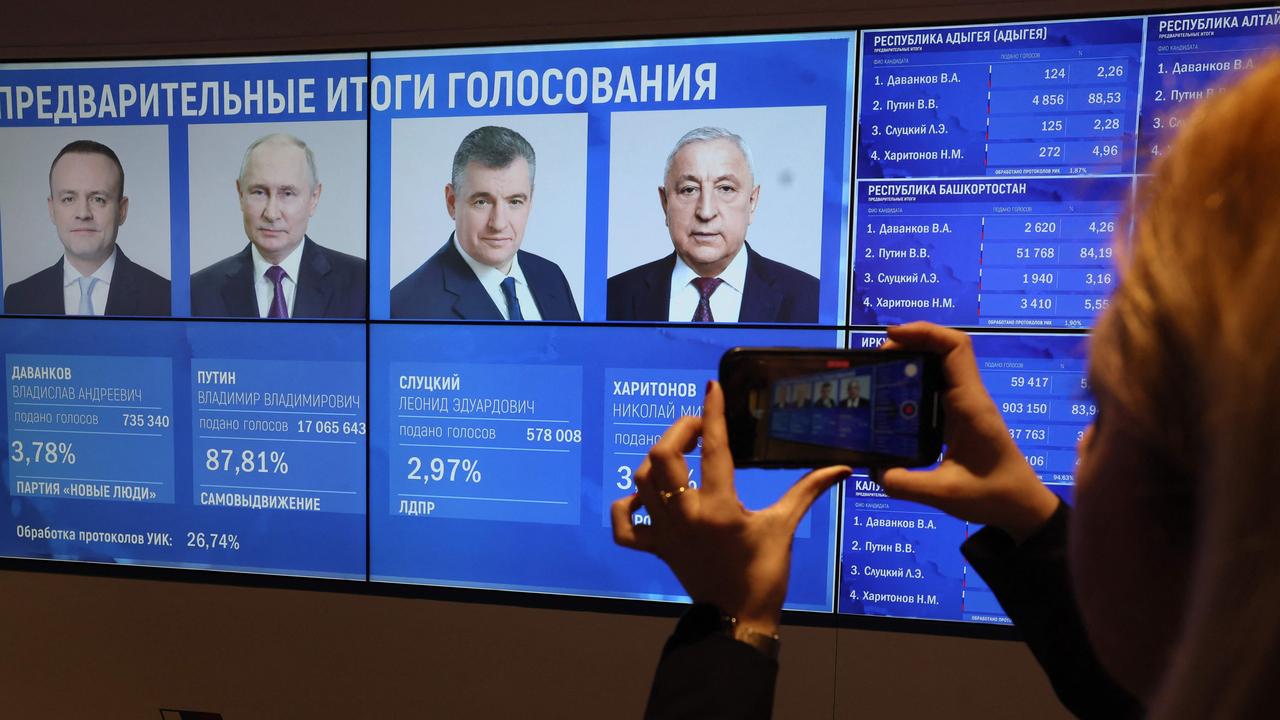
The Russian leader only faced competition from three token rivals and any public criticism of him or his war in Ukraine was silenced.
“The elections are obviously not free nor fair given how Mr Putin has imprisoned political opponents and prevented others from running against him,” the White House’s National Security Council spokesman said.
Putin’s biggest political opponent, Alexei Navalny, died in an Arctic prison last month under mysterious circumstances, and other critics of Putin have been put in jail or have fled the country in exile.
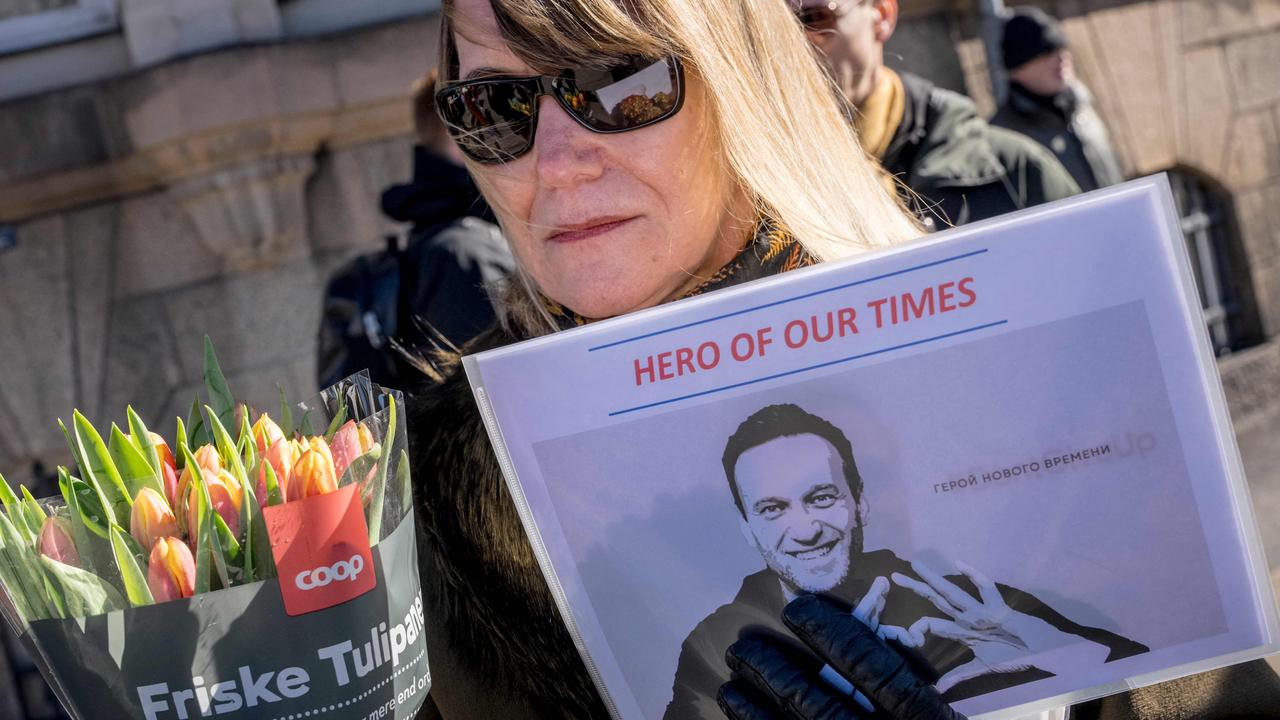
There was very little independent monitoring of the election to ensure it went ahead without any foul play and reports from media outlets suggested voters were under tight security and surveillance.
Stanislav Andreychuk, co-chair of the Golos independent election watchdog, said that pressure on voters from law enforcement had reached never before seen levels.
He said Russians were searched when entering polling stations and there had been attempts to check filled-out ballots before they were cast. He added that one report said police demanded a ballot box be opened to remove a ballot.
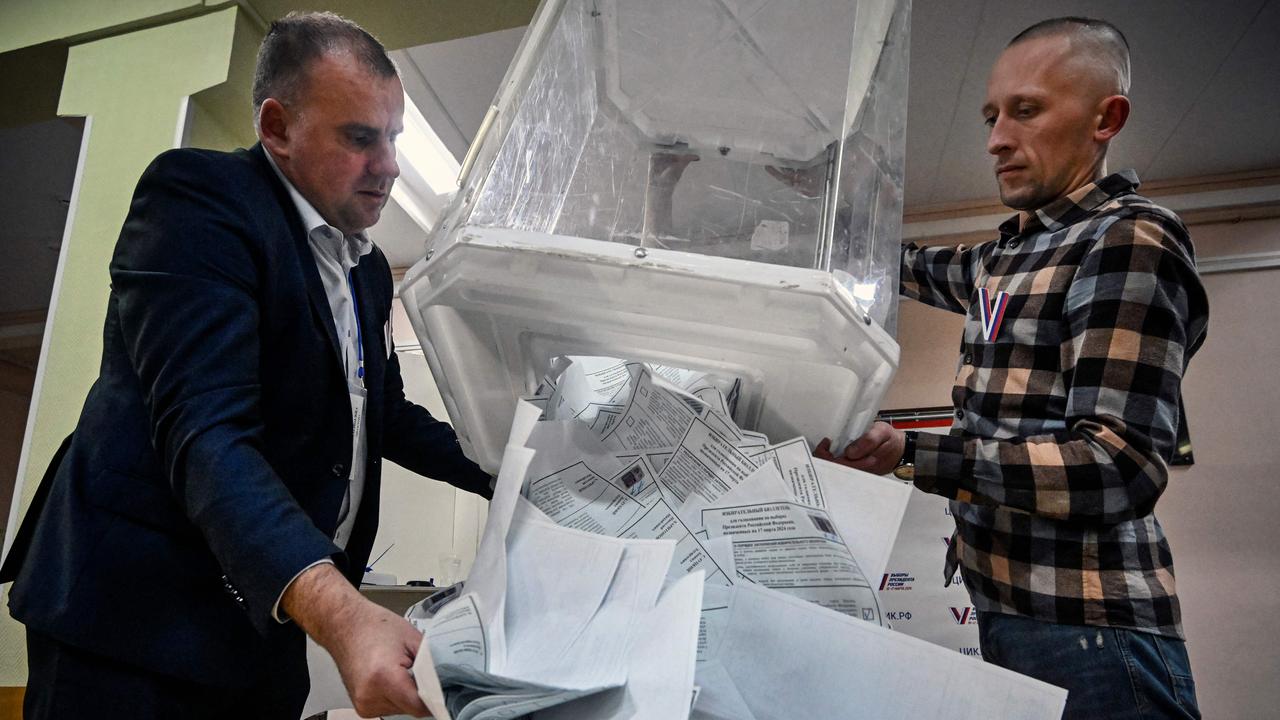
“It’s the first time in my life that I’ve seen such absurdities,” Andreychuk wrote on the messaging app Telegram, adding that he started monitoring elections in Russia 20 years ago.
Vladimir Putin said his victory showed Russians trusted his leadership.
“I want to thank all of you and all citizens of the country for your support and this trust,” Mr Putin said early Monday morning in a press conference at his campaign headquarters in Moscow.
Mr Putin said his country would not be intimidated, as he looked set to secure another six years in power after a three-day vote at polling stations across the vast country’s 11 time zones, in illegally annexed regions of Ukraine and online.
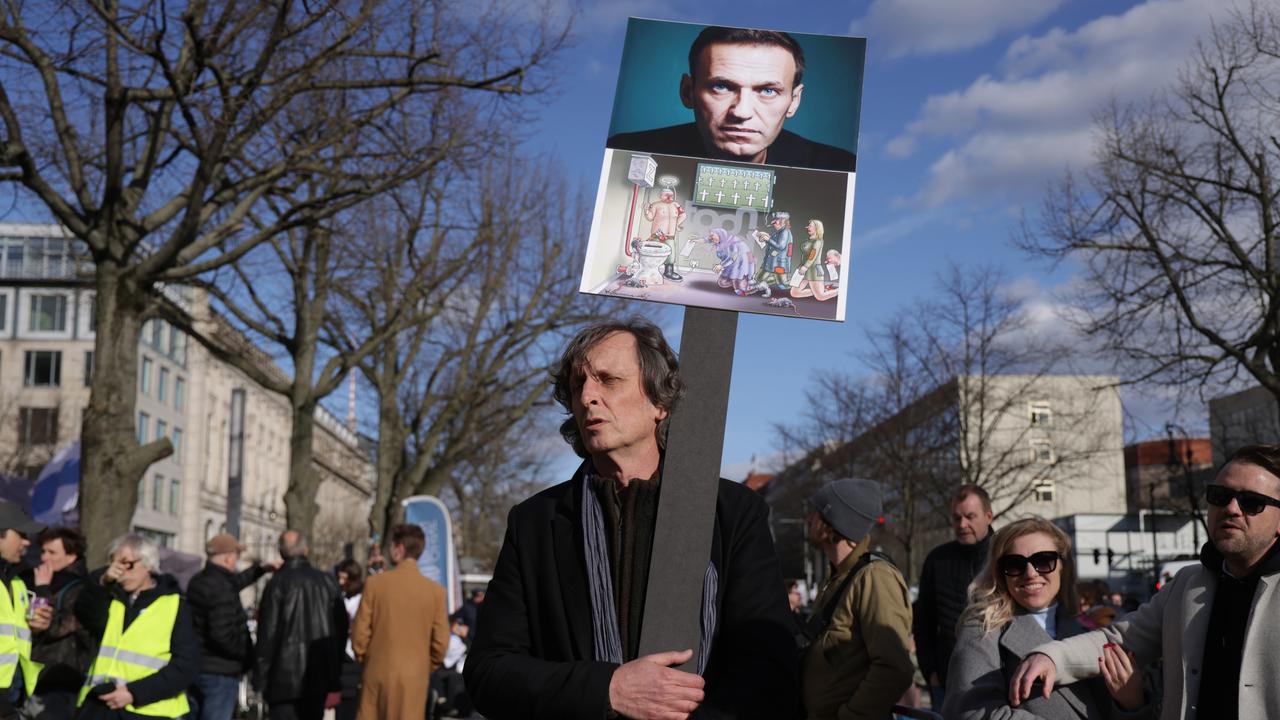
“NOON AGAINST PUTIN” PROTESTS
Supporters of Navalny had called on Russians to come out at a “Noon against Putin” protest to vote against a leader they described as a corrupt autocrat.
There was no independent tally of how many of Russia’s 114 million voters took part in the opposition demonstrations, but there were tens of thousands of police and security officials at hand to enforce order.
Independent journalists reported an increase in voters at noon at polling stations in Moscow, St Petersburg and Yekaterinburg, with queues of several hundred people.
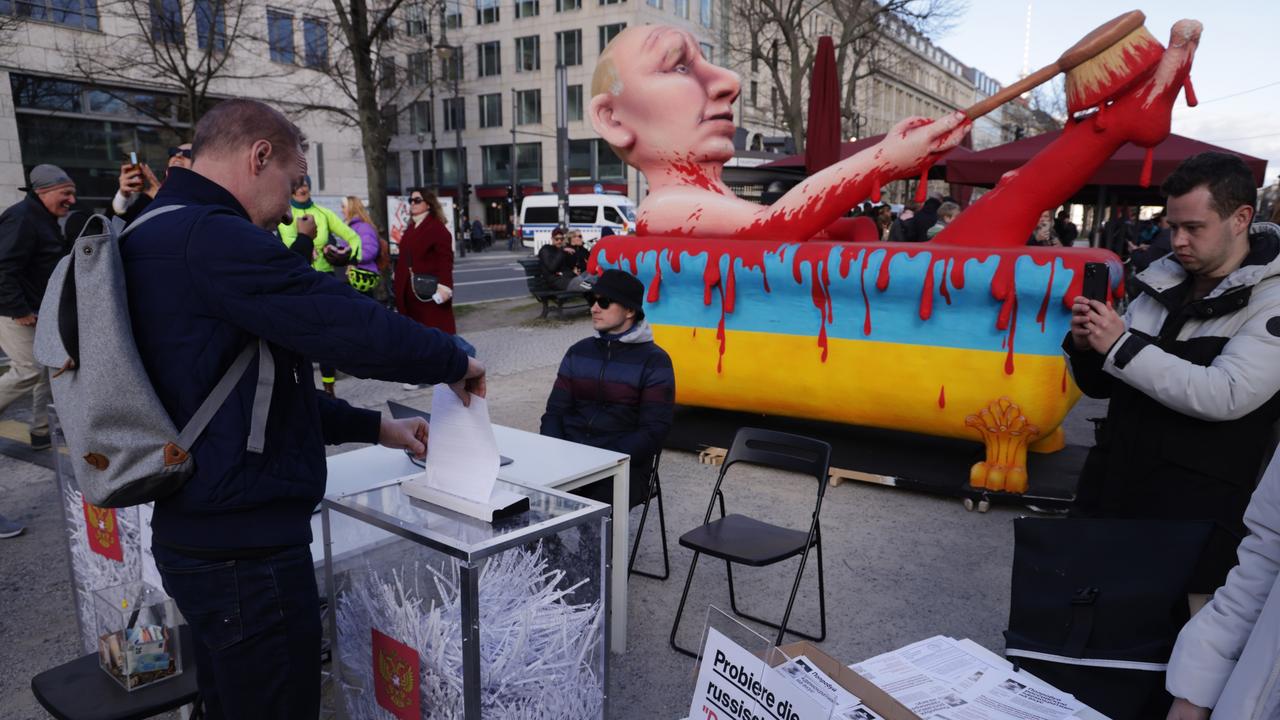
Some said they were protesting, though there were few signs to set them apart from ordinary voters.
Large crowds also gathered at polling stations set up in Russian embassies across Europe and Asia to vote.
In Berlin, Navalny’s widow, Yulia stood in line for five hours to cast her vote.
She told reporters she had written her husband’s name on her ballot.
Ivan Zhdanov, the head of Navalny’s Anti-Corruption Foundation, said that the opposition’s call to protest had been successful despite Putin’s election win.
“The action has shown that there’s another Russia, there are people who stand against Putin,” he said.
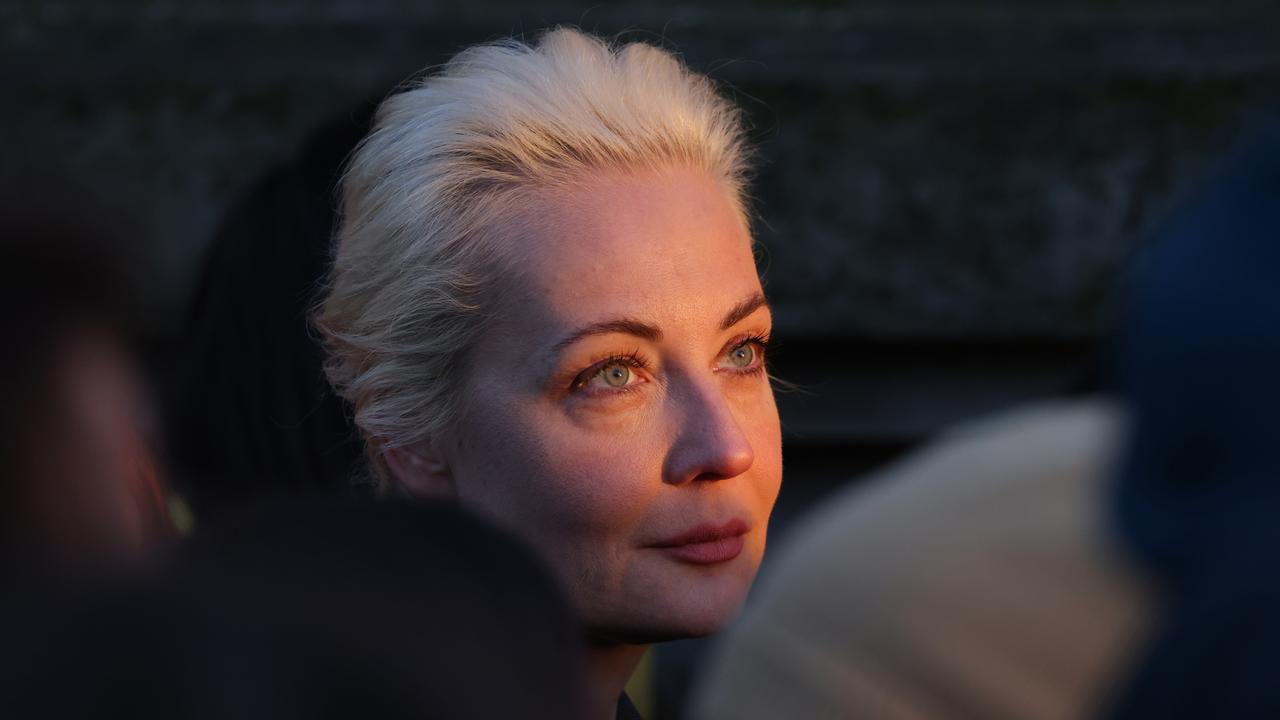
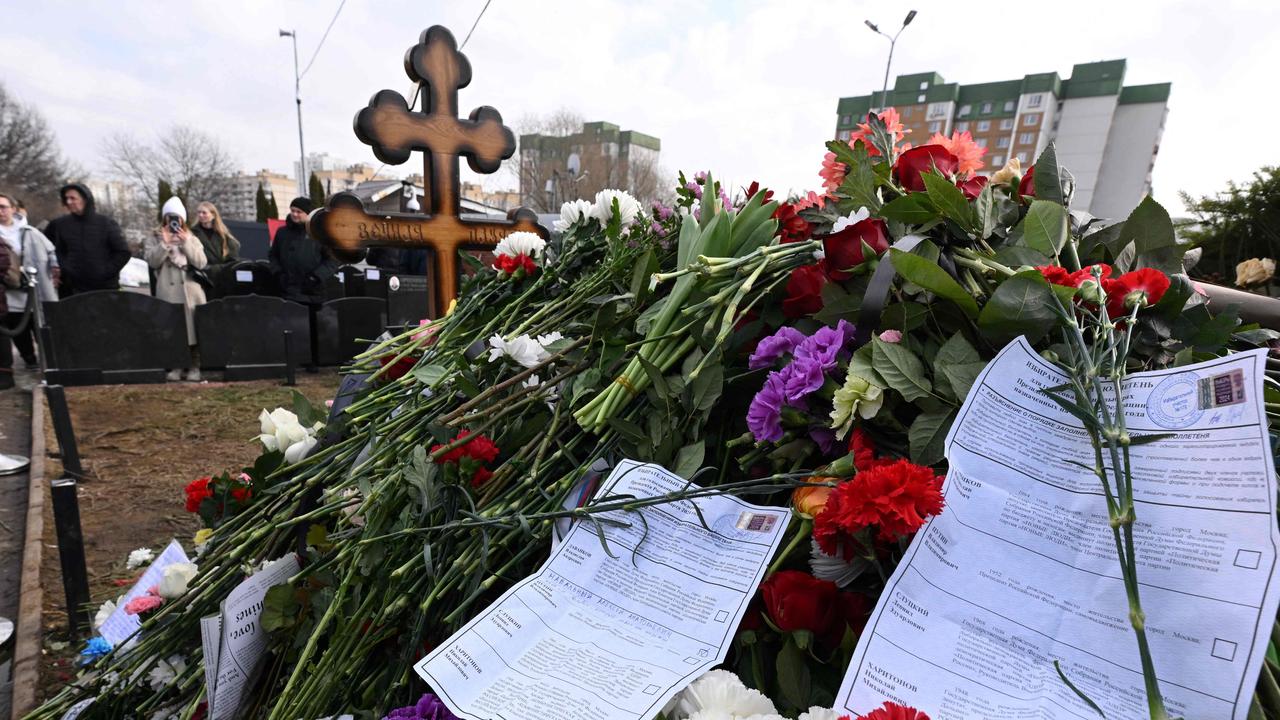
KEY MOMENTS IN PUTIN YEARS
Mr Putin started out as a KGB intelligence officer before working in the mayor’s office in Saint Petersburg in 1991, as the Soviet Union was falling apart.
Boris Yeltsin, Russia’s first president, appointed him as head of the FSB security service in 1998 and as prime minister the following year.
Mr Putin won his first presidential election in March 2000 and a second term in 2004.
Mr Putin gained popularity by promising stability to a country recovering from a decade of humiliation and economic chaos following the Soviet collapse.
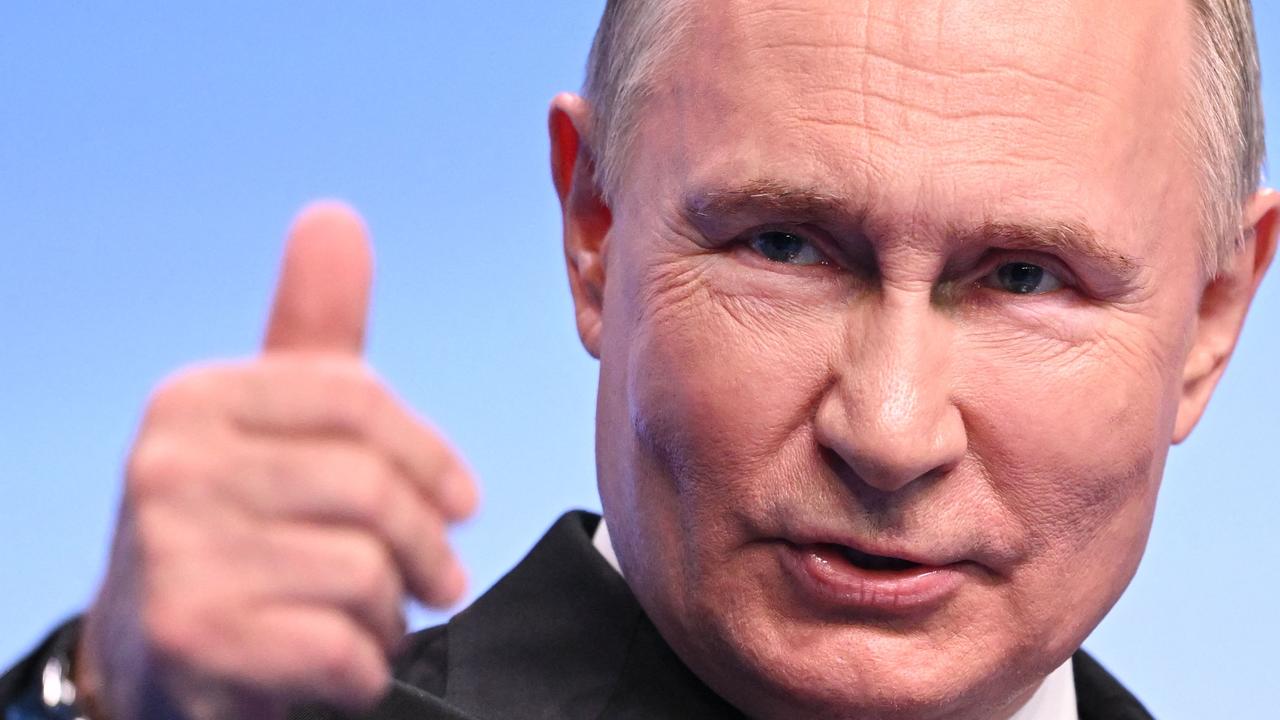
After two stints as president, Mr Putin switched back to being prime minister in 2008 to get around a constitutional ban on holding more than two consecutive terms as head of state.
But he kept the reins of power firmly in hand and returned to the presidency in 2012 before winning a fourth term in 2018.
He jailed his loudest rival, Alexei Navalny, in 2021 and kept him in prison for three years, where he died in February 2024.
Under Putin’s rule, Russia launched its ongoing invasion of Ukraine in 2022.
POLL
GLOSSARY
- Josef Stalin: communist dictator and leader of the Soviet Union from 1924 until 1953
- communist: type of government and economic system where the government and community as a whole owns everything and everyone is meant to share the wealth created
- illegally annexed: invaded and made to be part of the invading country’s territory
- autocrat: a person that rules with unlimited authority
- KGB: the main security agency for the Soviet Union until it was replaced by the FSB (see below)
- Soviet Union: the first country to form a communist government, existing in what is now Russia from 1922 to 1991
- FSB: Federal Security Service, Russia’s internal security and intelligence service
EXTRA READING
Cake on face after by-election win
Don trumps Swift’s Super Tuesday
Ukraine kids’ ‘new normal’ of war
QUICK QUIZ
1. What year was Vladimir Putin first elected President of Russia?
2. What proportion of votes did Putin get in this year’s election?
3. What was the name of Putin’s biggest political opponent who recently died in prison?
4. When did Putin launch Russia’s invasion of Ukraine?
5. What are two ways Russians protested against the election?
LISTEN TO THIS STORY
CLASSROOM ACTIVITIES
1. Election rules
Using your knowledge of our political system and how we conduct our elections in Australia, what are the wrongdoings of the Russian system?
List below the reasons as to why this election may not have been totally fair and reasonable;
–
–
–
–
–
Time: allow 20 minutes to complete this activity
Curriculum Links: English, Civics and Citizenship, Personal and Social, Critical and Creative Thinking
2. Extension
Why do you think Putin faced no serious competition in the election?
How could this be rectified in the future to be a more transparent and just system?
Time: allow 10 minutes to complete this activity
Curriculum Links: English, Civics and Citizenship, Personal and Social, Critical and Creative Thinking
VCOP ACTIVITY
To sum it up
After reading the article, use your comprehension skills to summarise in a maximum of three sentences what the article is about.
Think about:
- What is the main topic or idea?
- What is an important or interesting fact?
- Who was involved (people or places)?
Use your VCOP skills to re-read your summary to make sure it is clear, specific and well punctuated.

